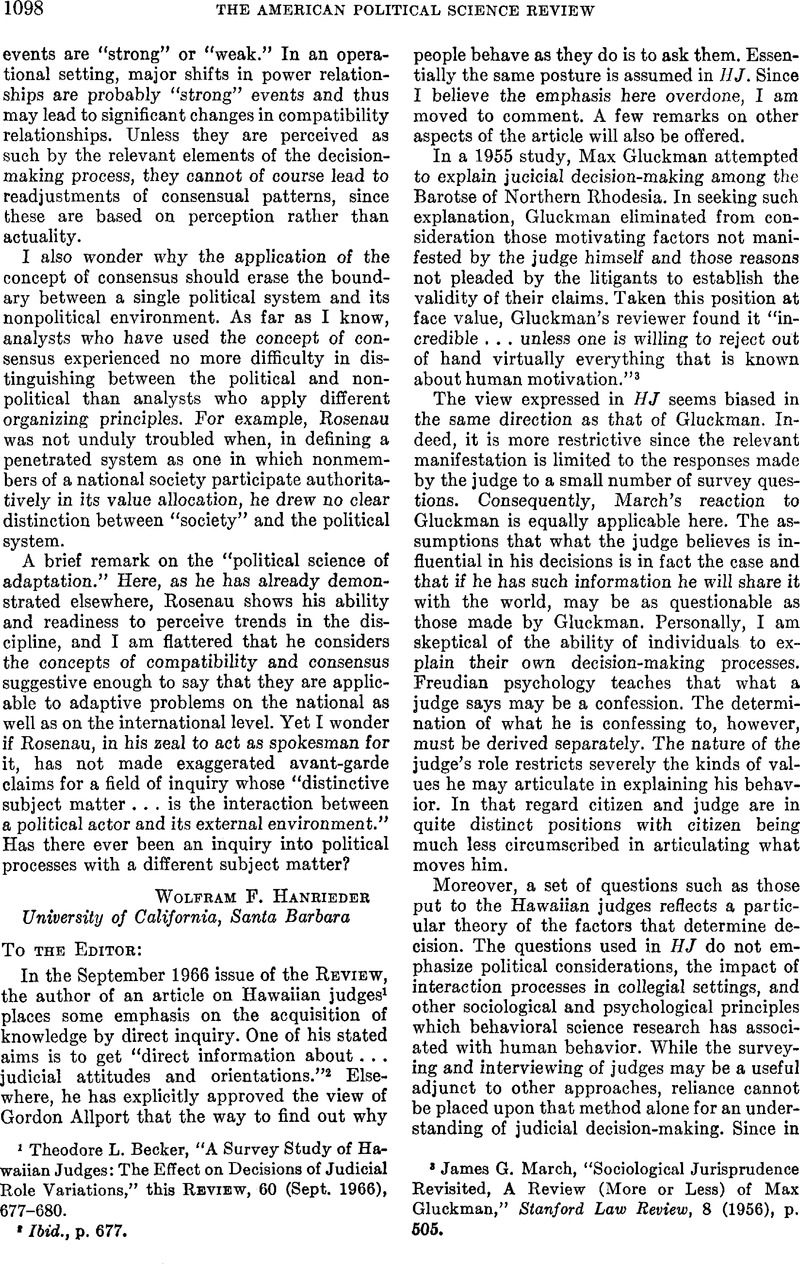No CrossRef data available.
Article contents
[no title]
Published online by Cambridge University Press: 01 August 2014
Abstract

- Type
- Communications to the Editor
- Information
- Copyright
- Copyright © American Political Science Association 1967
References
1 Theodore L. Becker, “A Survey Study of Hawaiian Judges: The Effect on Decisions of Judicial Role Variations,” this Review, 60 (Sept. 1966), 677–680.
2 Ibid., p. 677.
3 March, James G., “Sociological Jurisprudence Revisited, A Review (More or Less) of Max Gluckman,” Stanford Law Review, 8 (1956), p. 505CrossRefGoogle Scholar.
4 Op. cit., p. 679.
5 Since objective decision is defined as a decision consistent with the requirement of precedent but contrary to the judge's own “enlightened” view, it is necessary to know whether all judges perceive the requirement of precedent in a given hypothetical case in similar terms. Although the author does not go into this question, consensual cognition must be assumed in his model. Such an assumption may be questioned.
6 See: Guilford, J. P., Fundamental Statistics in Psychology and Education (New York: 1956), p. 237Google Scholar.
7 A more detailed explanation of this “theory” and the data breakdown used are available on request.




